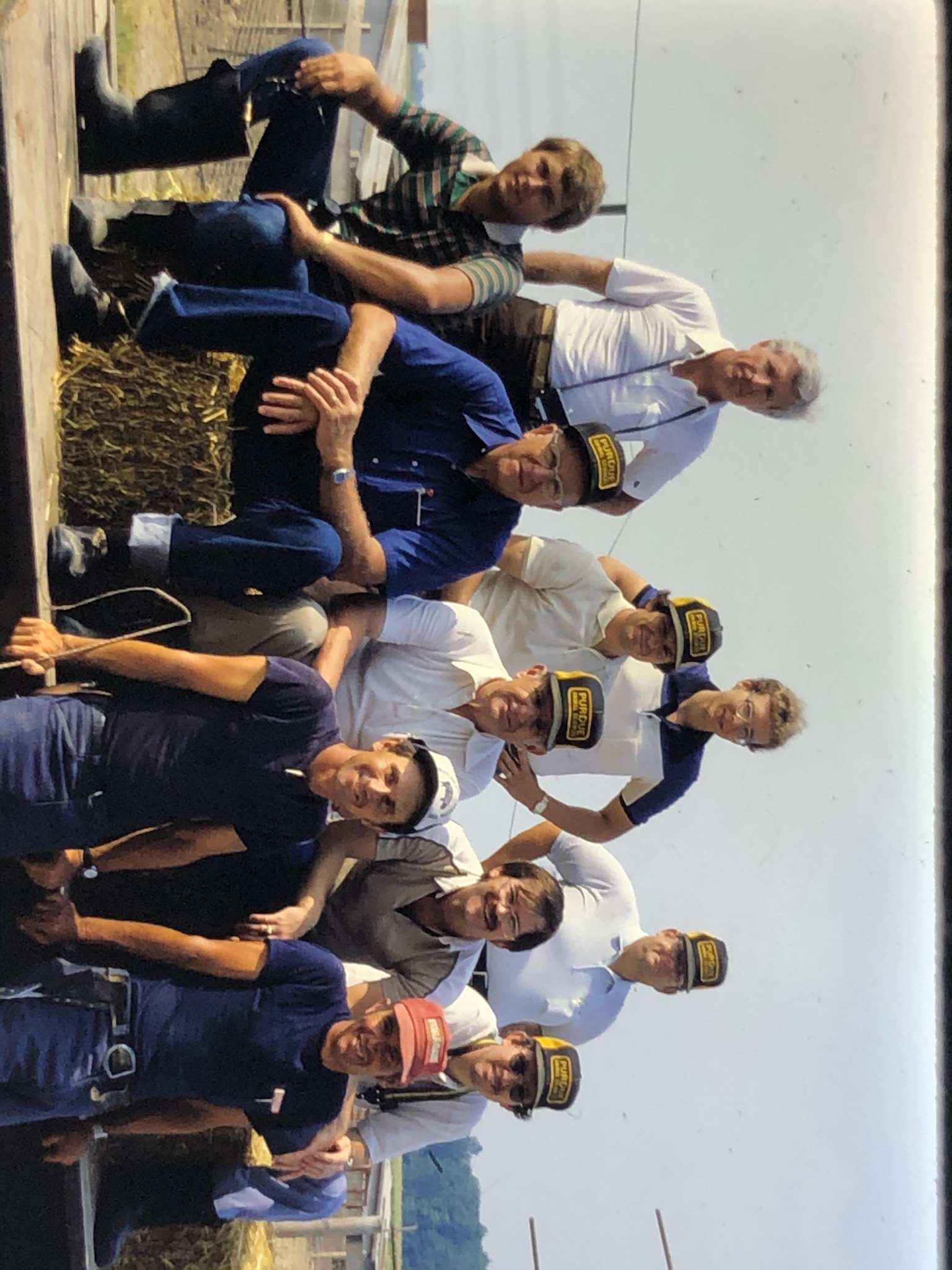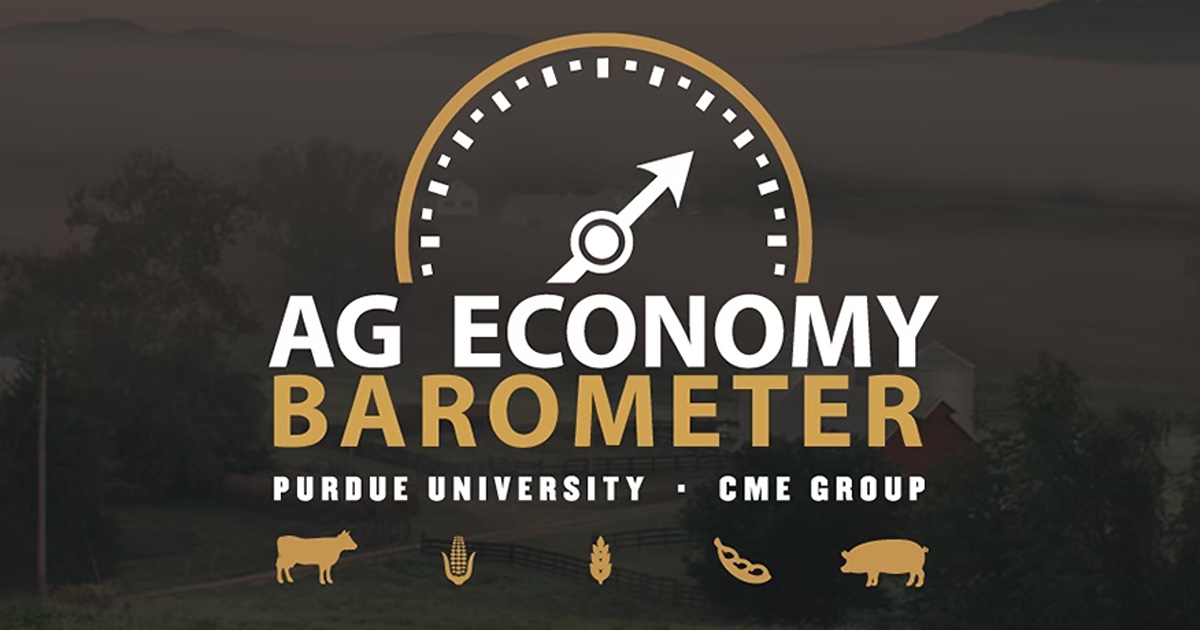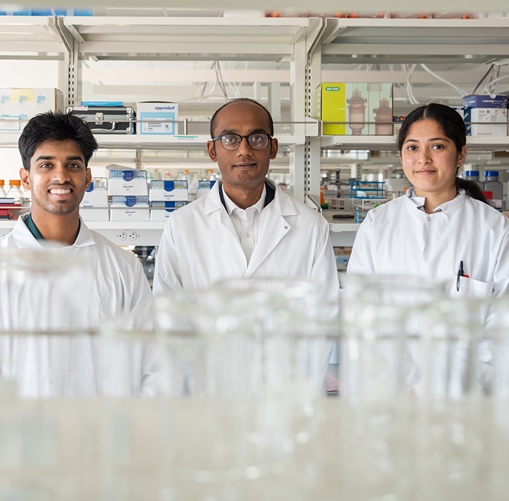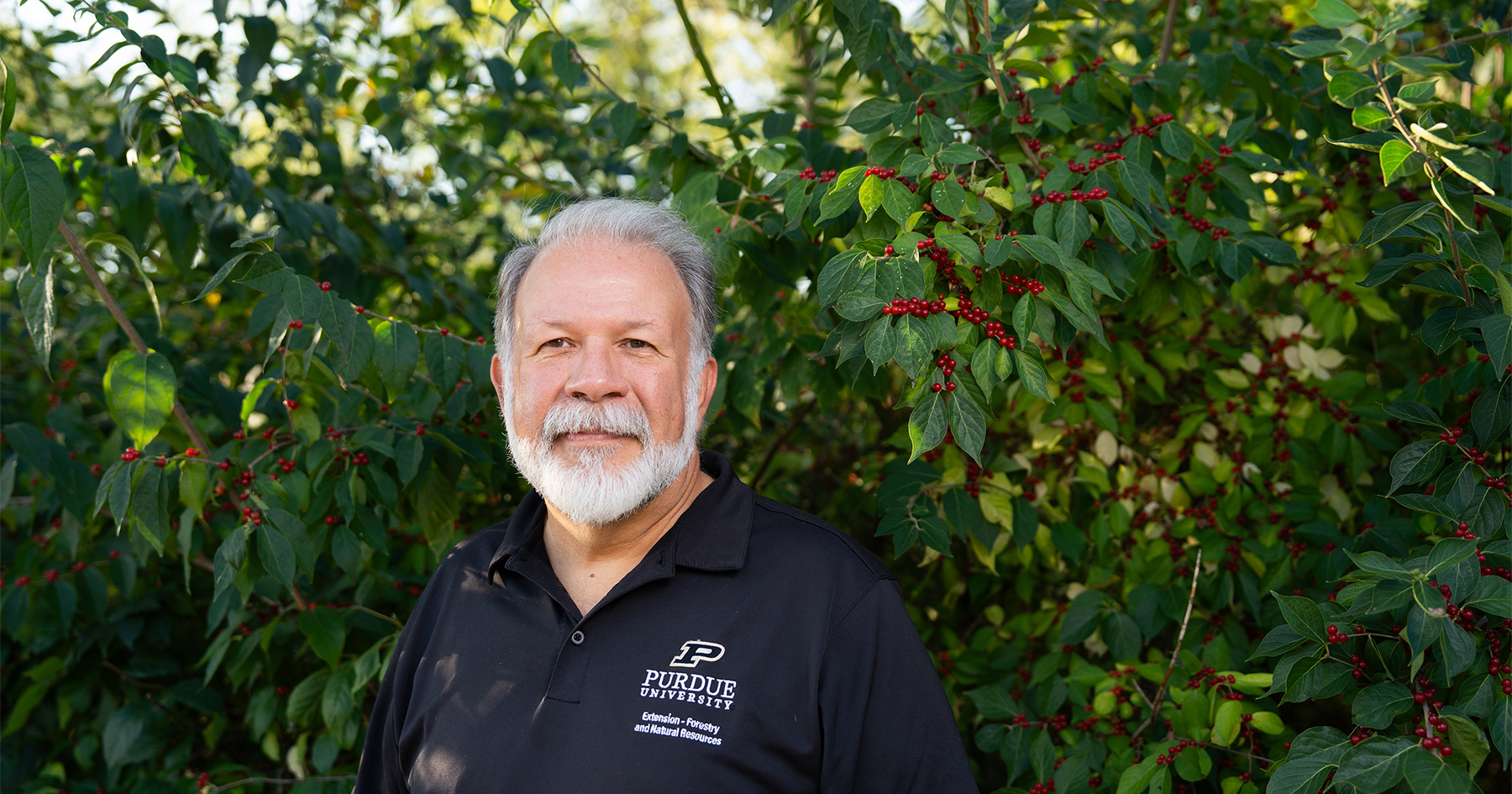Faculty Spotlight: Allan Schinckel
Allan Schinckel, PhD, is a professor in the Purdue Animal Sciences Department, retiring after nearly 42 years of service.
Raised in Davenport, Iowa, Schinckel’s involvement in 4-H sparked an interest in livestock judging and genetics.
Schinckel earned his bachelor’s degree in animal sciences from Iowa State University in 1978, followed by a master’s degree in 1980 and a doctoral degree in animal breeding in 1982, both from the University of Nebraska.
Since joining Purdue in 1983, Schinckel has focused his research on genetic selection programs, lean growth modeling, pork quality and methods to predict carcass composition and value. He was a key contributor to the STAGES program, which introduced Estimated Progeny Differences (EPDs) for swine to enhance breeding practices.
 A group of Purdue Animal Sciences faculty members.
A group of Purdue Animal Sciences faculty members. Additionally, Schinckel co-developed a patented sow cooling pad to alleviate heat stress in farrowing sows, a technology aimed at improving animal welfare and productivity.
Reflecting on his career, Schinckel noted, “The most rewarding part of my career has been working on impactful team projects, like the STAGES program and lean growth trials, which have shaped industry practices.”
Over the course of his career, Schinckel has authored more than 200 refereed publications and contributed to research on production systems, environmental effects on pig growth, food safety and growth promotants. His work in swine lean-growth modeling has been particularly significant, examining genetic-nutrition interactions to optimize lean production efficiency.
He has collaborated with colleagues globally, contributing to graduate committees across five countries and mentoring over 65 graduate students.
“Training graduate students who have gone on to lead in their fields is one of the accomplishments I value most,” Schinckel said.
In the classroom, Schinckel has taught courses including ANSC 44300 Swine Management, ANSC 51300 Design of Animal Breeding Programs and ANSC 69500 Modeling of the Compositional Growth and Nutritional Requirements of Pigs. His teaching emphasizes real-world applications, critical thinking, and preparing students for roles in the animal sciences industry.
Beyond teaching, he has advised the Pork Interest Group (PIG), a student organization connecting students with the swine industry through guest speakers, career events, and activities like Junior Pork Day.
Schinckel advises students to embrace a broad range of experiences during their education.
“Get as much experience as possible through internships, undergraduate research or international travel,” Schinckel said. “Understand how you learn, balance your activities with your academics and seize the opportunities available to you.”
He emphasized the importance of connecting with a wide range of people and gaining hands-on experience to prepare for future challenges.
“Students who engage with faculty and research during their undergraduate years are often more prepared for graduate or professional school,” Schinckel said.
Although retiring, Schinckel plans to remain active at Purdue by teaching graduate-level courses, continuing research projects and consulting in swine genetics. He expressed a desire to give back during this new phase of his career while maintaining flexibility to spend time with his family.
“I’ll likely be working about half-time for a few years, as I still have several ongoing commitments,” Schinckel said.
Schinckel’s career reflects significant contributions to teaching, research, and mentoring, impacting students, colleagues and the livestock industry over the past four decades.






